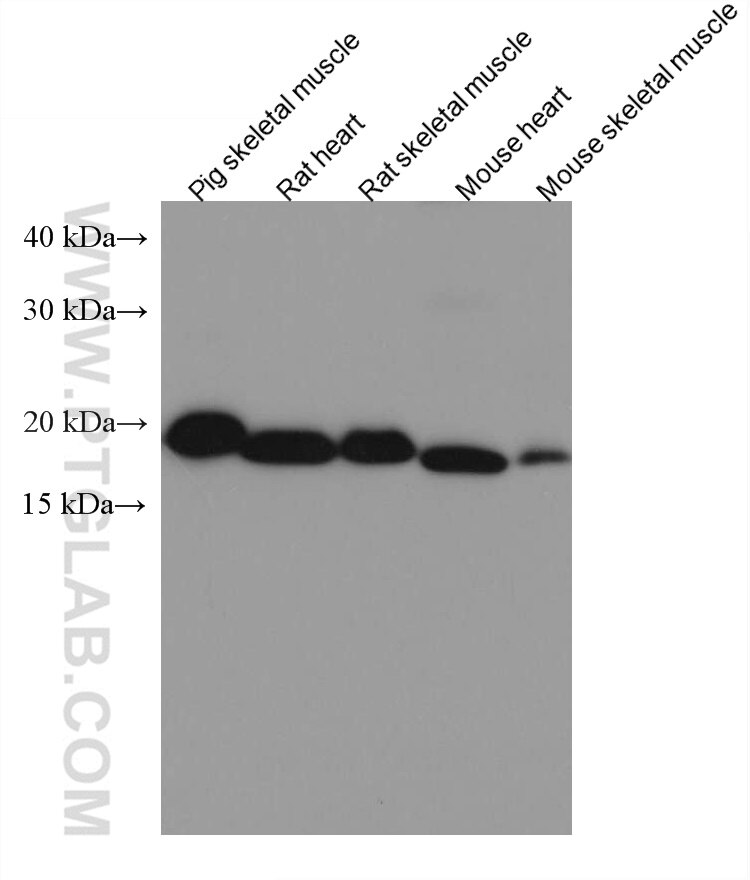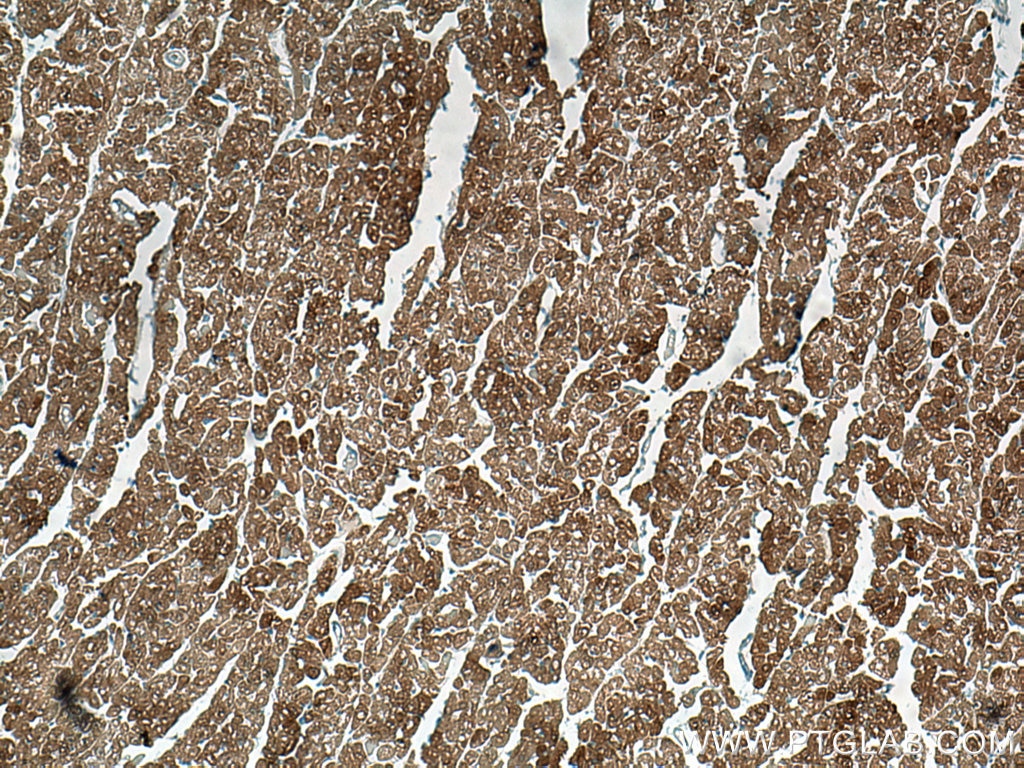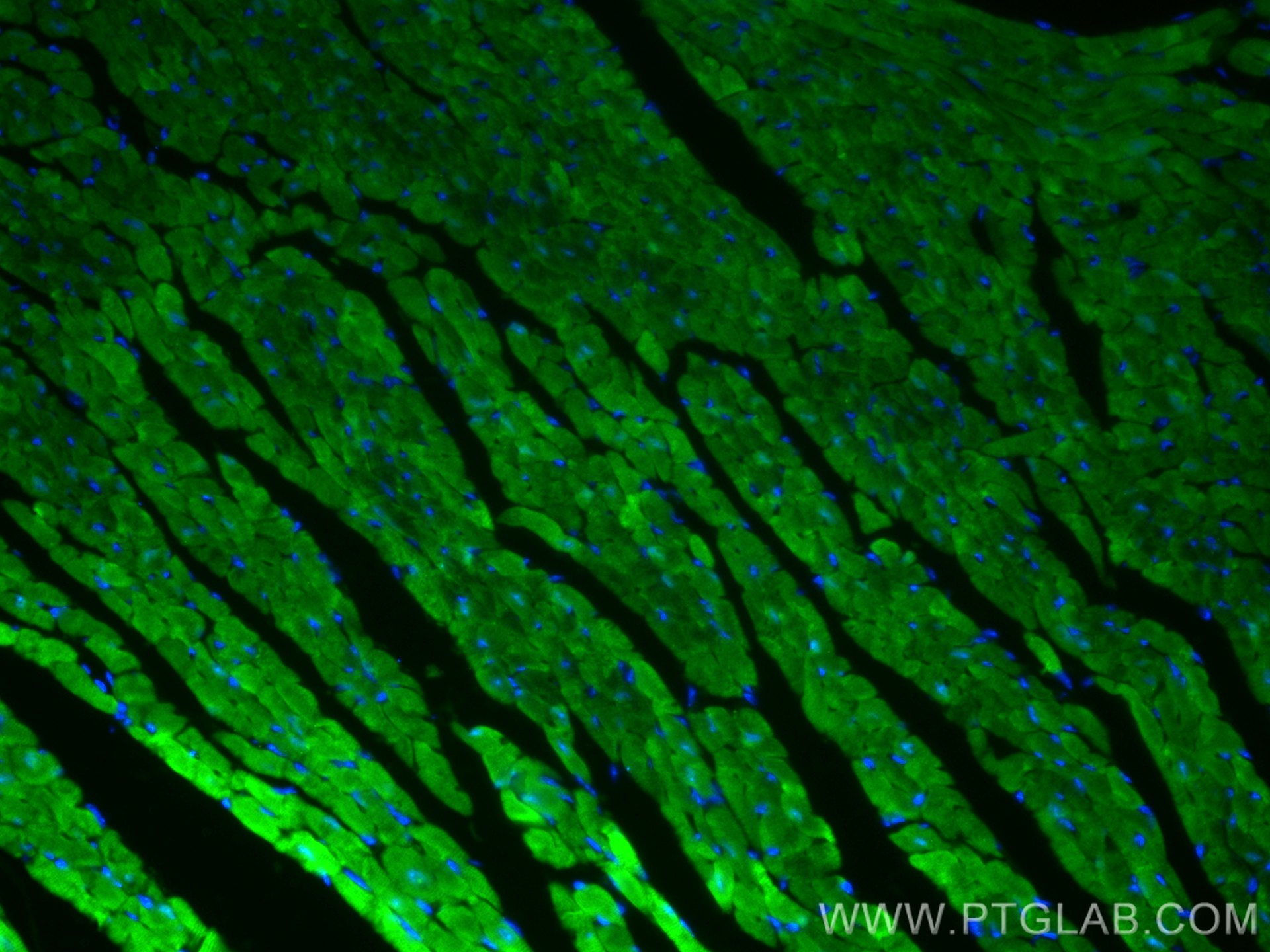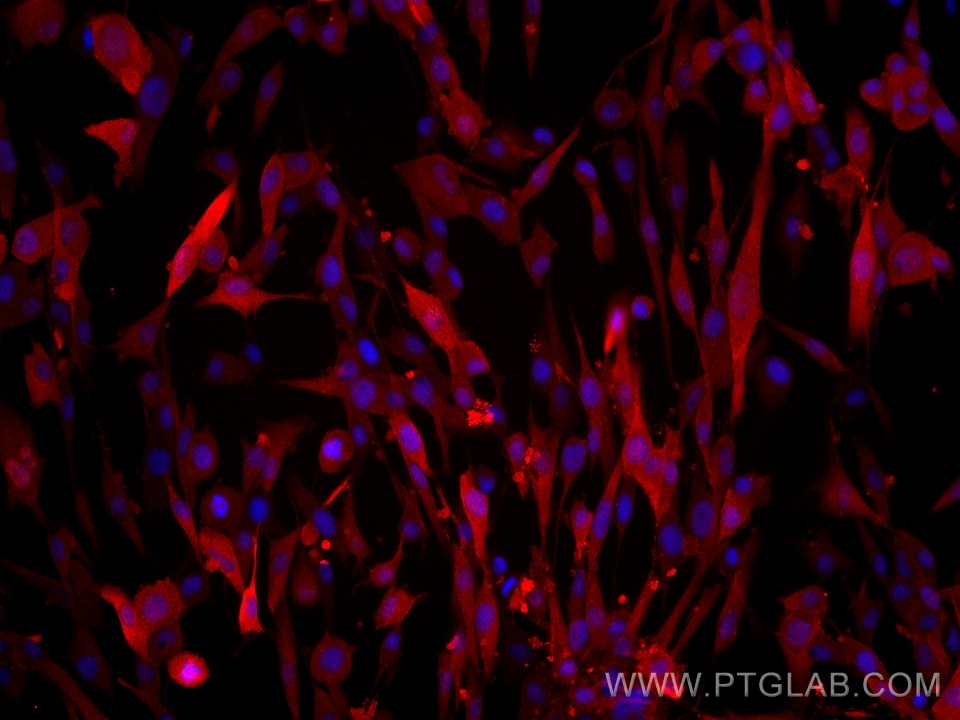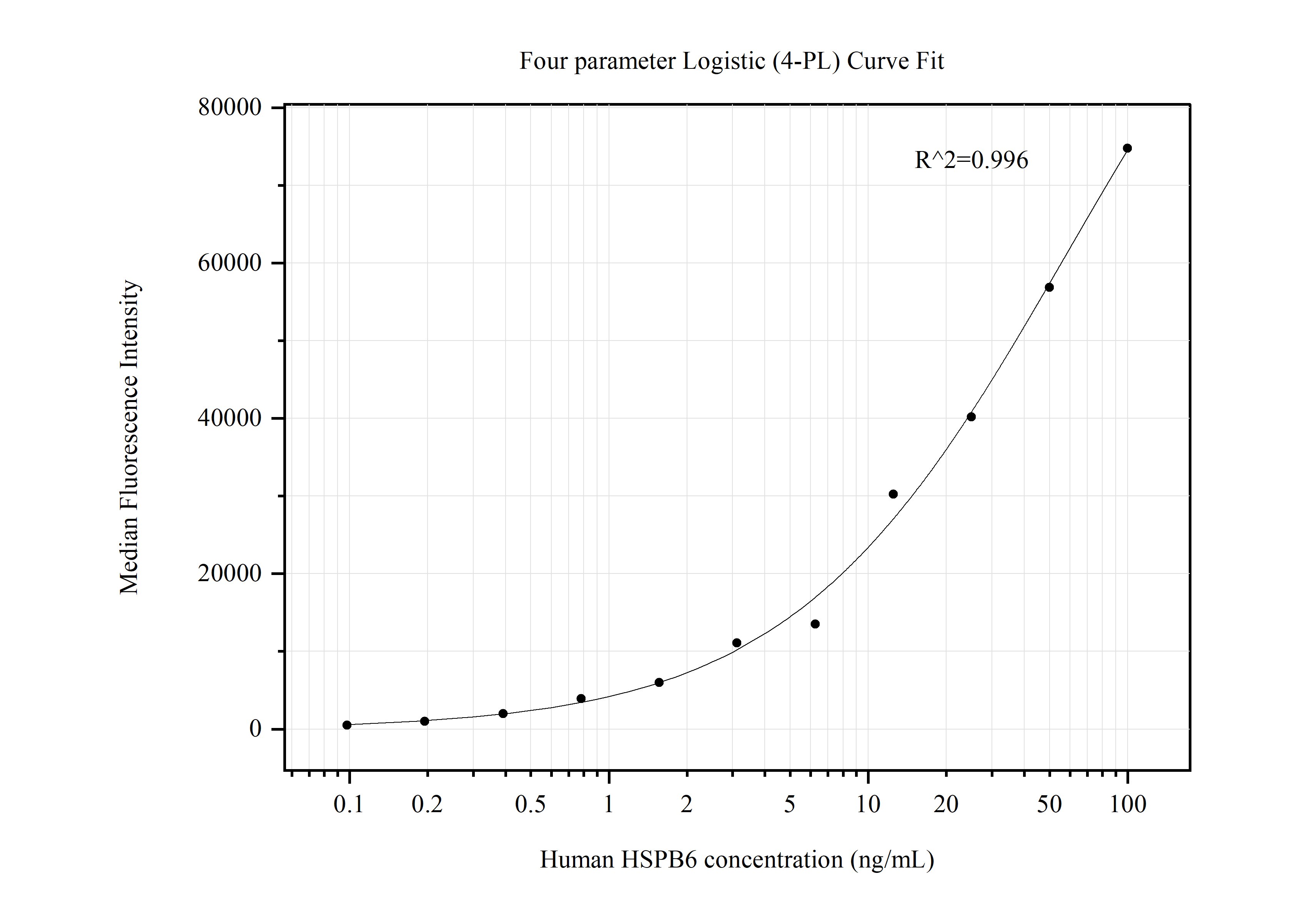Validation Data Gallery
Tested Applications
Recommended dilution
| Application | Dilution |
|---|---|
| It is recommended that this reagent should be titrated in each testing system to obtain optimal results. | |
Product Information
67327-1-PBS targets HSP20 as part of a matched antibody pair:
MP50552-2: 67327-1-PBS capture and 67327-4-PBS detection (validated in Cytometric bead array)
Unconjugated mouse monoclonal antibody pair in PBS only (BSA and azide free) storage buffer at a concentration of 1 mg/mL, ready for conjugation.
This conjugation ready format makes antibodies ideal for use in many applications including: ELISAs, multiplex assays requiring matched pairs, mass cytometry, and multiplex imaging applications.Antibody use should be optimized by the end user for each application and assay.
| Tested Reactivity | human, mouse, rat, pig |
| Host / Isotype | Mouse / IgG2a |
| Class | Monoclonal |
| Type | Antibody |
| Immunogen |
CatNo: Ag10484 Product name: Recombinant human HSPB6 protein Source: e coli.-derived, PET28a Tag: 6*His Domain: 1-160 aa of BC068046 Sequence: MEIPVPVQPSWLRRASAPLLGLSAPGRLFDQRFGEGLLEAELAALCPTTLAPYYLRAPSVALPVAQVPTDPGHFSVLLDVKHFSPEEIAVKVVGEHVEVHARHEERPDEHGFVAREFHRRYRLPPGVDPAAVTSALSPEGVLSIQAAPASAQAPPPAAAK 相同性解析による交差性が予測される生物種 |
| Full Name | heat shock protein, alpha-crystallin-related, B6 |
| Calculated molecular weight | 160 aa, 17 kDa |
| Observed molecular weight | 17 kDa |
| GenBank accession number | BC068046 |
| Gene Symbol | HSP20 |
| Gene ID (NCBI) | 126393 |
| RRID | AB_2882586 |
| Conjugate | Unconjugated |
| Form | |
| Form | Liquid |
| Purification Method | Protein A purification |
| UNIPROT ID | O14558 |
| Storage Buffer | PBS only{{ptg:BufferTemp}}7.3 |
| Storage Conditions | Store at -80°C. |
Background Information
Hsp20 is a member of the small heat shock superfamily of proteins that function as chaperones to prevent protein misfolding through adenosine triphosphate−independent processes. It is widely expressed but is most abundant in cardiac, skeletal, and smooth muscles. Phosphorylation of HSP20 at Ser16 was elevated in human failing hearts as well as in murine hearts after I/R injury Indicating its cardioprotective function.

